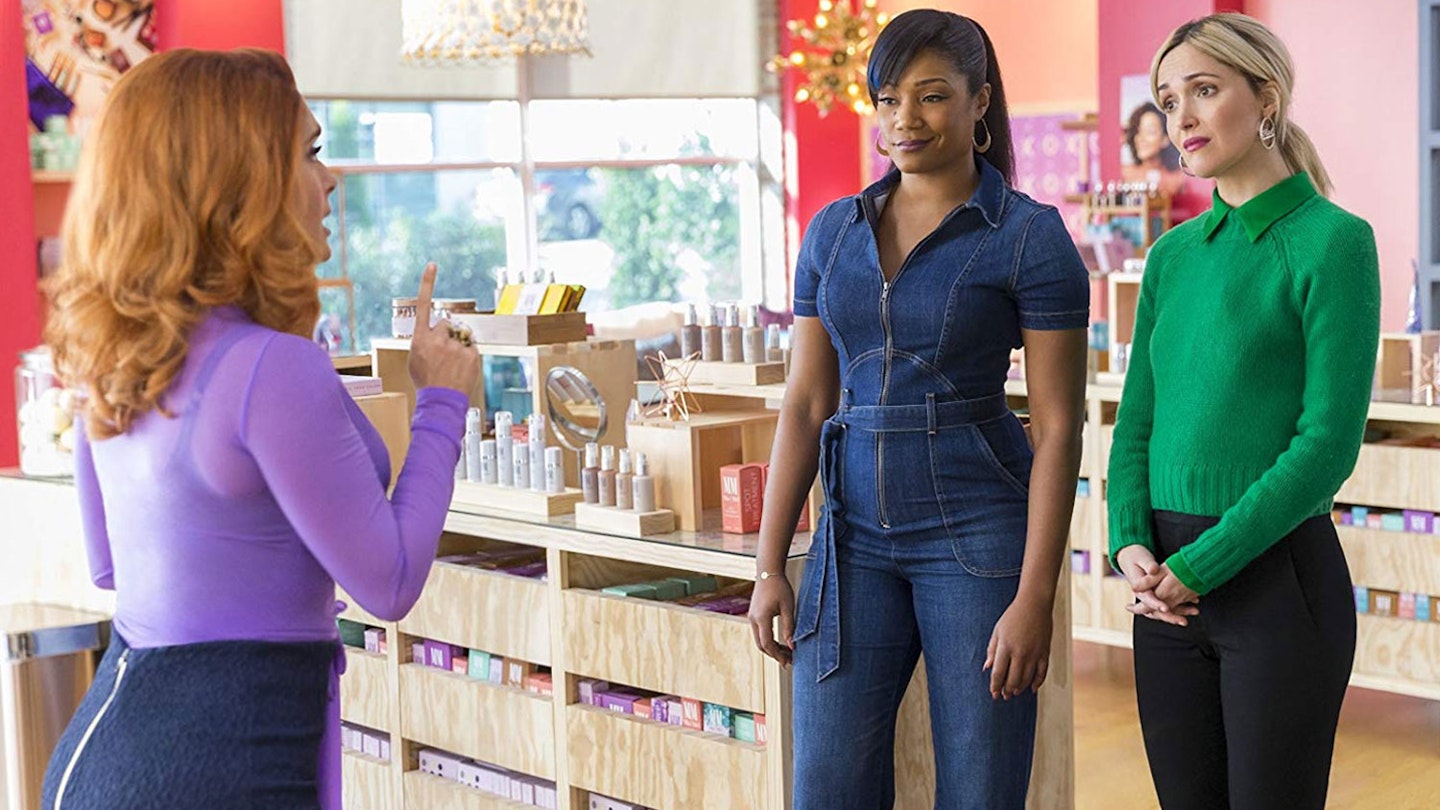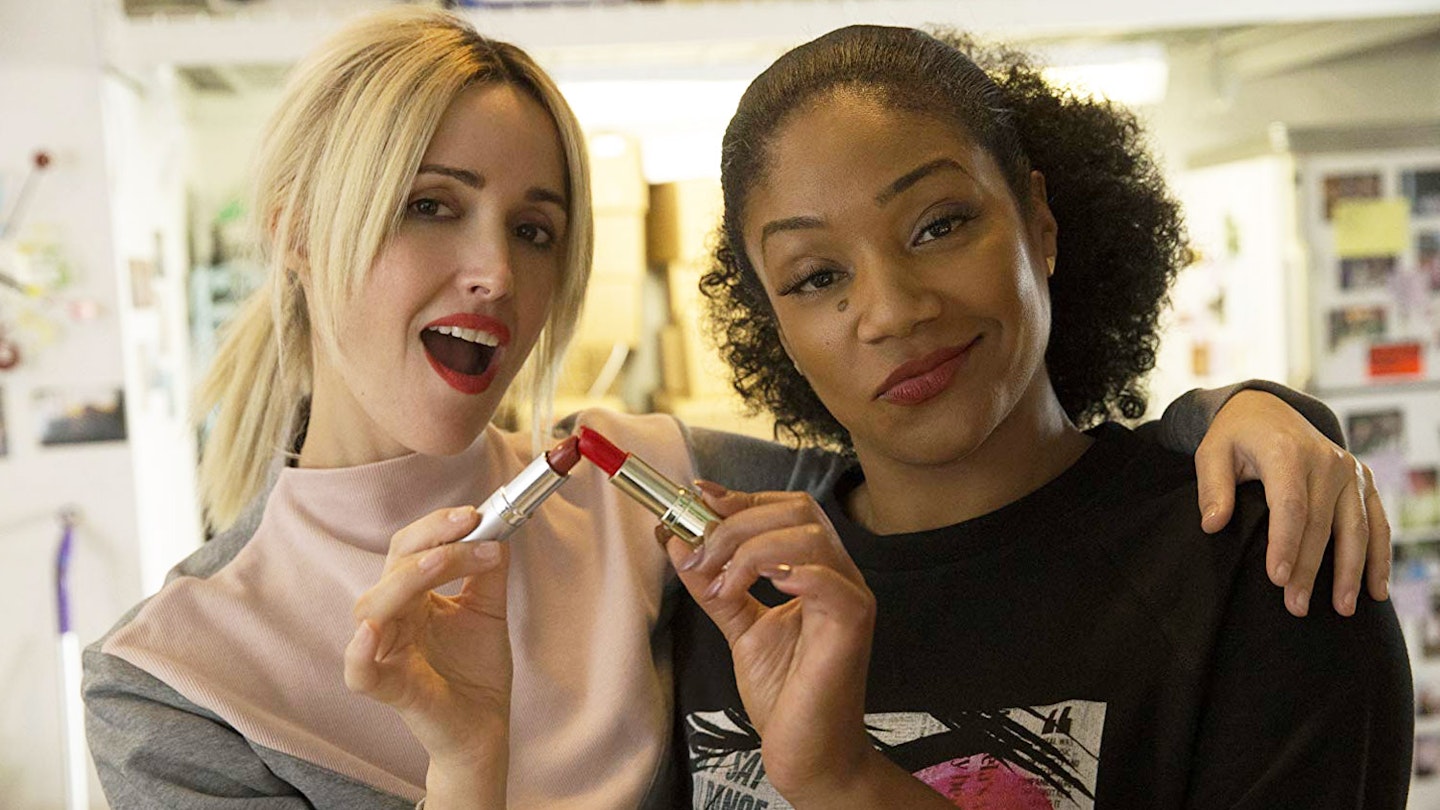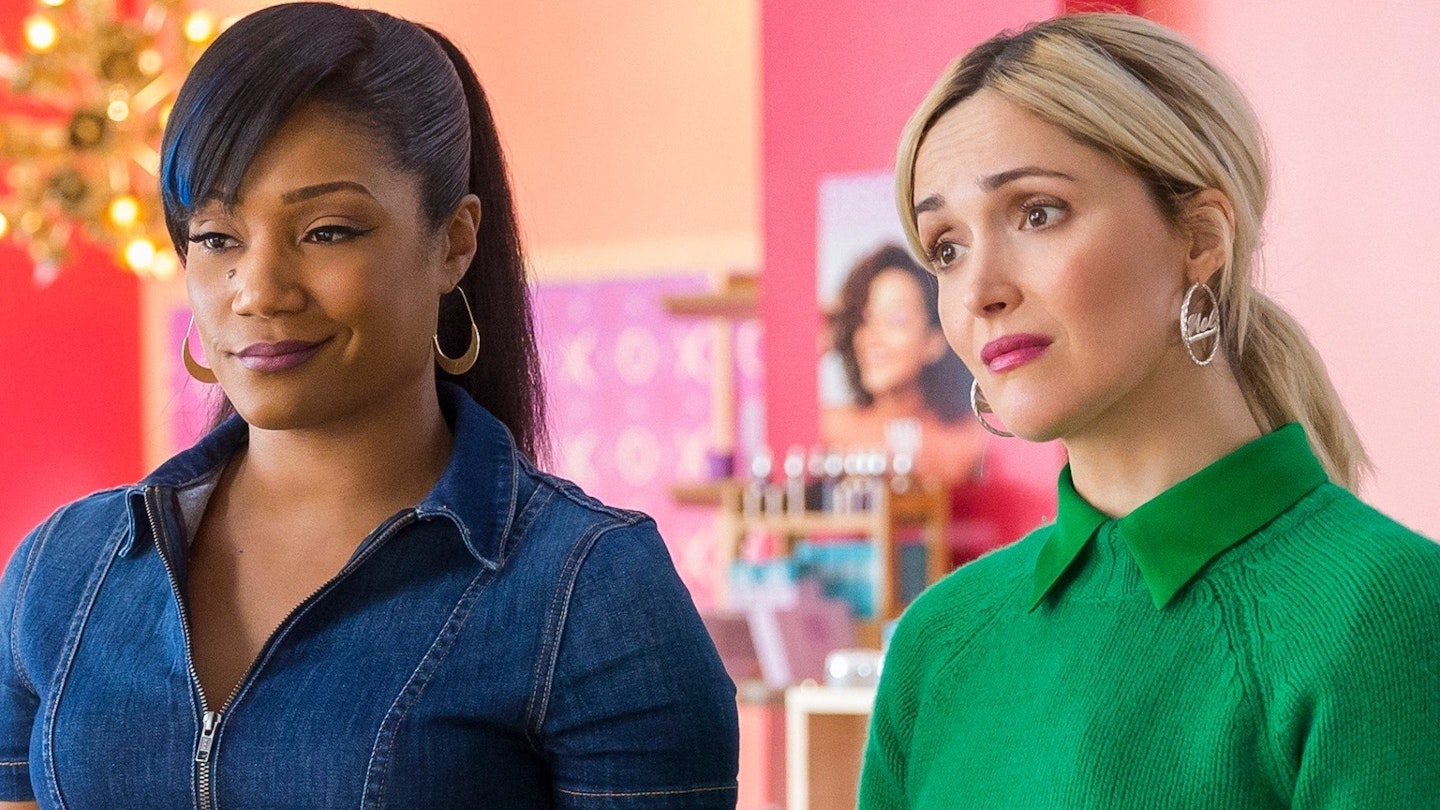There is a standout scene in Miguel Arteta’s women-at-work comedy where our central duo — Mia (Haddish) and Mel (Byrne) — are drunk at a party. Stealing a quiet moment alone, they talk about the food that they ate while mourning the loss of Mia’s mother, who served as a matriarch to them both (Mel’s mother is a drug addict). It’s a tender moment amidst the fast, capricious pace of the surrounding film, weighted by the actors’ ability to weave vulnerability into their otherwise brassy performances. It’s also the closest thing to a heartbeat buried in this Frankenstein’s monster of a film, comprised of clumsily stitched together limbs from feminist comedies past.

Haddish and Byrne were pivotal to two such lauded comedies — the former giving her breakout performance in box office smash Girls Trip, the latter bringing waspy playfulness to Bridesmaids. Both have proven their longstanding ability to blend bawdy humour with sentiment, but the script, from Sam Pitman and Adam Cole-Kelly (adapted from New Girl producer Danielle Sanchez-Witzel’s story), assumes that this is all these characters are capable of, shoving the pair through a series of egregiously overused predicaments (food-based sabotage, weaponised karaoke) and relying on an outdated model of female rivalry to drive the story forward.
Playing the enemy, with her stripper heels and hair scraping the heavens, Hayek’s nefarious Claire Luna is robbed of any character development, which at a time when even Disney villains are getting their own origin stories feels lazy.
The players are all there at Arteta’s disposal — including a grossly underused Billy Porter as Mel and Mia’s sweet-natured employee — but the script is so threadbare, the plot so clearly purloined from its predecessors, that if anything it sets the genre back a step. It’s no longer enough to be branded feminist and funny, and the sooner studios evolve, the sooner casualties like this can be avoided.




